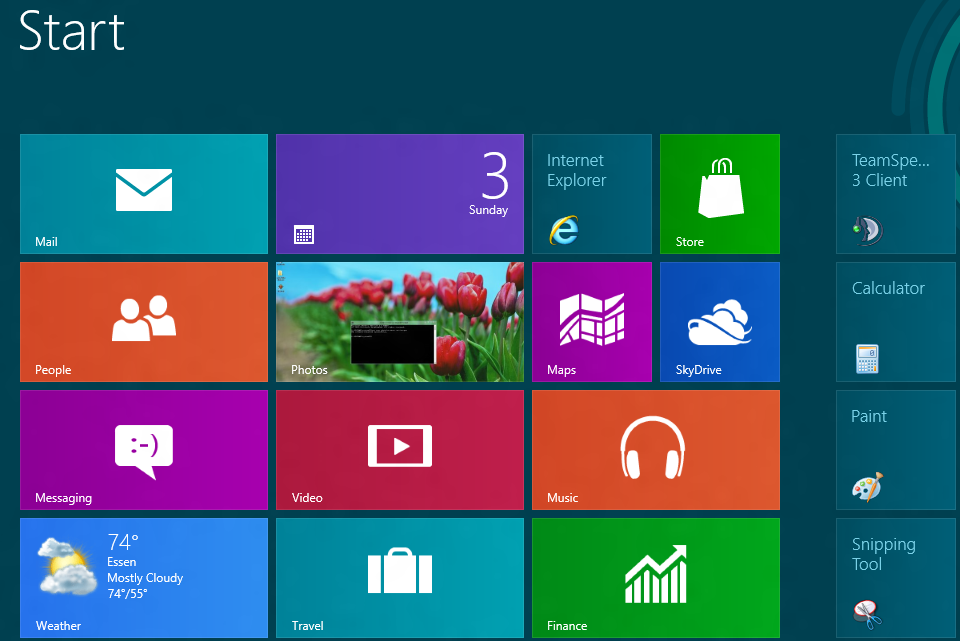
Windows 8 deserves a chance
When I set up my first Windows 8 system back when Microsoft released the Developer Preview, I was somewhat irritated by the removal of core operating system features like the Start menu that I had been using for over a decade in different versions of Windows. Even more alien was the new startpage that Microsoft had added to the operating system which felt like a new interface that had nothing to do with the desktop and the way Windows used to be.
I too believed at this point that Microsoft was making a huge mistake, that it was betting big on touch and that touch-enabled devices would become the de facto standard in computing. While I believed that they got it right for the mobile computing market, I could not see myself using a touchscreen on my desktop PC. Sure, the startpage and Charms menu did support mouse and keyboard as well, but it somehow felt like something that Microsoft added on top of the native controls.

Scattered clouds: Why I don’t trust other people with my data
It’s the Next Big Thing. Any vaguely IT-related person just has to say something like “computing is moving to the cloud” and everyone nods their heads wisely. And so it is with Office 2013. I’ve been using the Public preview of Office since it appeared two weeks ago, and I have to say I like it; and I also like the much more straightforward integration with Skydrive and Sharepoint. But there’s still no way I’m going to change my default habit of local saving and working to using the Cloud as my primary storage. And here’s why.
There are several aspects to this, and the first two are most revealing of the way in which people sitting in Redmond, Wash., Cupertino, Calif., or most other major corporations live in a different world from the rest of the population of this little blue planet of ours.

Apple is not smart, Samsung is the Borg
I was supposed to be on CNN on Monday night to comment on the Apple v. Samsung patent infringement trial that just started in San Jose, Calif., but then presidential candidate Mitt Romney insulted the Palestinians and I was bumped. The way these things work is CNN calls the day before so I have time to think up something pithy to say. The question now is what to do with all that pith? So I’m dumping it on you. Consider this the long distance view of this legal battle in the context of what it really is -- brands at war.
As a practical matter, I think it is very unlikely that Apple can win based on its accusation of “slavish copying”. We have laws based around copyright and patents for that, and if patent or copyright had been broken, this would be an easier case. I suppose there may be laws that cover “slavish copying”, but my guess is that it is something hard to prove. Even if the products look similar, the internals are likely to be quite different, as is the OS.

Come fly the insecure skies, a lesson in IT deployment at one of the largest US airports
In July of 2011, Bryan Halfpap waited for his return flight home to Maryland. A network systems security professional working for a natural resource refiner and energy provider, he had just finished up the week of events at the DefCon security conference in Las Vegas.
Slumped in his waiting chair, tired, bored, and with time to kill, he popped open his laptop. Audio and visual confirmations of open wireless networks lit up his computer. McCarran International Airport, the gateway to the neon-colored pleasure island that is Las Vegas, had free Wi-Fi. For whatever reason, Halfpap wanted to kill some time by getting to know the airport he was sitting in.

PC-era dinosaurs: Beware the BYOD Extinction Level Event
Ah! Life in paradise. As the literal incarnation of the mythical "guy who ran away to a tropical island", I've had the joy of returning to my once primary (and now mostly vacation) home in the United States only to discover all of the things that can go wrong with an empty house in the Florida heat (this time, it was a failed A/C compressor -- ugh!).
However, I've also had the opportunity to revisit many of my core IT beliefs from the perspective of a relative outsider living in the slower-paced world of coconuts, litches and 2Mbps ADSL connections. Basically, my geographic isolation has forced me to take the long view on new technology trends. Which is why I'm so excited about the potential of BYOD: I see the emergence of the Post-PC phenomenon as a truly disruptive force that will forever change how people view "computers".

The Internet was created to save money
Depending on who you are talking to there were several very different reasons why the Internet was created, whether it was military command and control (Curtis LeMay told me that), to create a new communication and commerce infrastructure (Al Gore), or simply to advance the science of digital communications (lots of people). But Bob Taylor says the Internet was created to money. And since Bob Taylor was, more than anyone, the guy who caused the Internet to be created, well, I’ll believe him.
Taylor, probably best known for building and managing the Computer Systems Laboratory at XEROX PARC from which emerged advances including Ethernet, laser printing, and SmallTalk, was before that the DARPA program manager who commissioned the ARPANet, predecessor to the Internet. Taylor was followed in that DARPA position by Larry Roberts, Bob Kahn, and Vint Cerf -- all huge names in Internet lore -- but someone had to pull the trigger and that someone was Bob Taylor, who was tired of buying mainframes for universities.
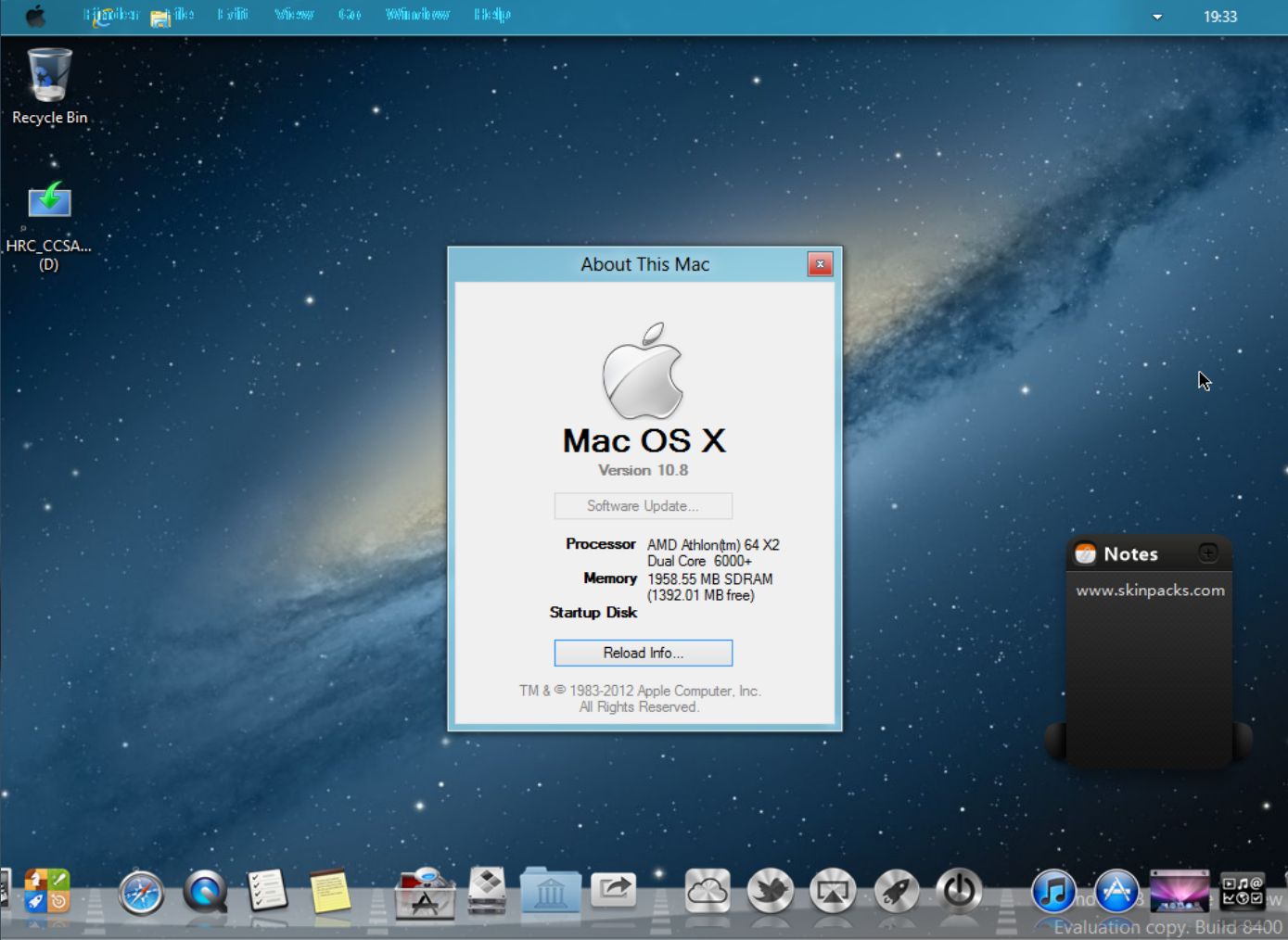
Transform Windows 8 into Mac OS X Mountain Lion
If you’re running Windows 8, but like the look of Apple’s new Mountain Lion OS, you can use a skin pack to assuage some of your UI envy, without dumping Metro in the process (which may be a good or bad thing, depending on how you feel about the new tiled interface).
The Mountain Lion Skin Pack for Windows 8 Consumer Preview was obviously designed for the earlier trial version of Windows 8 (the clue is in the name), but it works just as well in the release candidate. It won’t actually transform Windows into Mountain Lion, so you won’t get cool features like apps that match their iOS counterparts, cloud-based sync features or AirPlay mirroring, but it will at least give you a reasonable flavor of Mountain Lion’s aesthetics.

5 ways to put hackers on the defensive
Black Hat keynote speaker Shawn Henry, the former executive assistant director of the FBI’s Criminal, Cyber, Response and Service Branch, started off the day after opening remarks from Jeff Moss, founder of Blackhat. Moss wondered if now was the time for the cyber-security sector to take a more aggressive/offensive approach. Moss mentioned working for a former employer years back, a firewall manufacturer that had a product that would launch specially crafted code in response to an attacker, sort of an early offensive DoS attack. This was an early attempt by security professionals to cause pain by going on the offensive.
But since DoS attacks aren’t exactly a legal offensive tactic nowadays, what to do? He recommends civil action, a la recent Facebook actions where attackers were sued in civil court. But what happens when attackers are overseas? Mr. Moss is hopeful that responding in a civil manner would “encourage” other countries to implement legal protections to stop current and future attack attempts abroad.
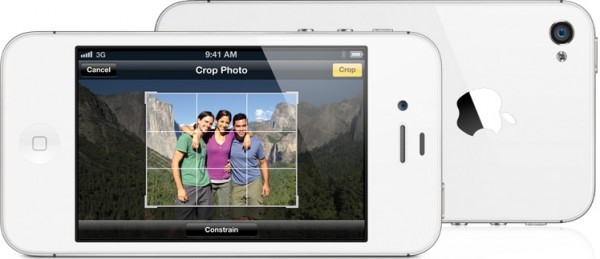
iPhone sales are slowing, deal with it
Apple shares closed down 4.32 percent today, keeping with a trend started during after-hours trading yesterday. The real question: Could matters have been much worse, if not for the big carrot that came with the little stick? Apple missed fiscal Q3 Wall Street analyst consensus for revenue and income, but announced a big dividend and promise of more to follow. Performance was by no means bad, just not as good as forecast and the dividend, $2.65 per share, is something for shareholders to smile about.
But behind the magic, I have to ask: Is Apple distracting shareholders and Wall Street analysts, making them look over there so they miss the trick going on over here? It's a question I can't answer but can only speculate about. Another quarter of results will reveal much. One thing is certain now: iPhone sales are slowing. There's no if about it, but why. Are people waiting for the new model or are Android rivals like Samsung pulling away more buyers?
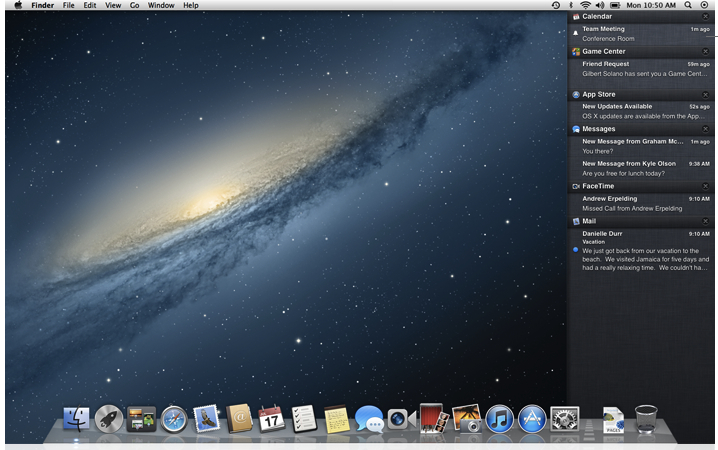
Why should I, a Windows user, care about Mountain Lion anyway?
As it has been widely reported today, Apple released its latest desktop operating system, OS X 10.8 (Mountain Lion) to the public. The operating system costs just $20 to download through the Mac app store, and is available to all current Mac users running OS X 10.6 or higher.
But you are a Windows user with no intention of switching over to Mac OS. If you bought a Mac you'd, probably boot Windows on it. You really have no place for Mountain Lion in your heart or mind, so what could anyone possibly say about it that would make you nod your head in agreement that a feature is cool or signifies one trend or another?
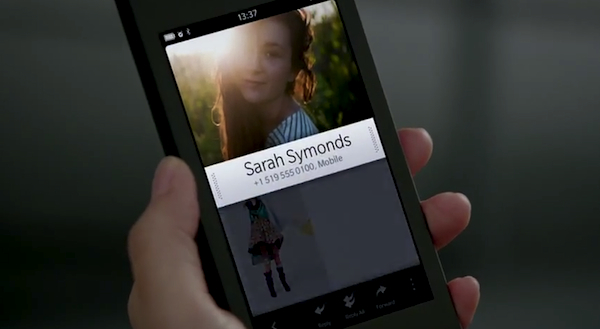
Research in Motion isn't in a 'death spiral'
The conjured term "death spiral" has been so overused in discussions about Blackberry-maker Research in Motion that one must ask: Are the tech pundits crying wolf too often, too soon? Do a targeted search for "Research in Motion death" on Google and you will easily see that this rush to judgement started all the way back in early 2010. Like the doomsday naysayers of yesteryear, RIM's date of decease has anything but solidified (to some pundits' shock.)
The short-term future for RIM is a rocky road indeed. With its face-saving Blackberry 10 OS release being pushed back another quarter into early 2013, the smartphone giant has little glitz to match the other big boys temporarily. Samsung's instant-hit -- aka the Galaxy S3 -- has already touched down. Google's got its latest iteration of Android, Jelly Bean, cooking for its flagship devices including the Nexus and the S3. And the iPhone 5 rumor mill just can't take a week off as of late.
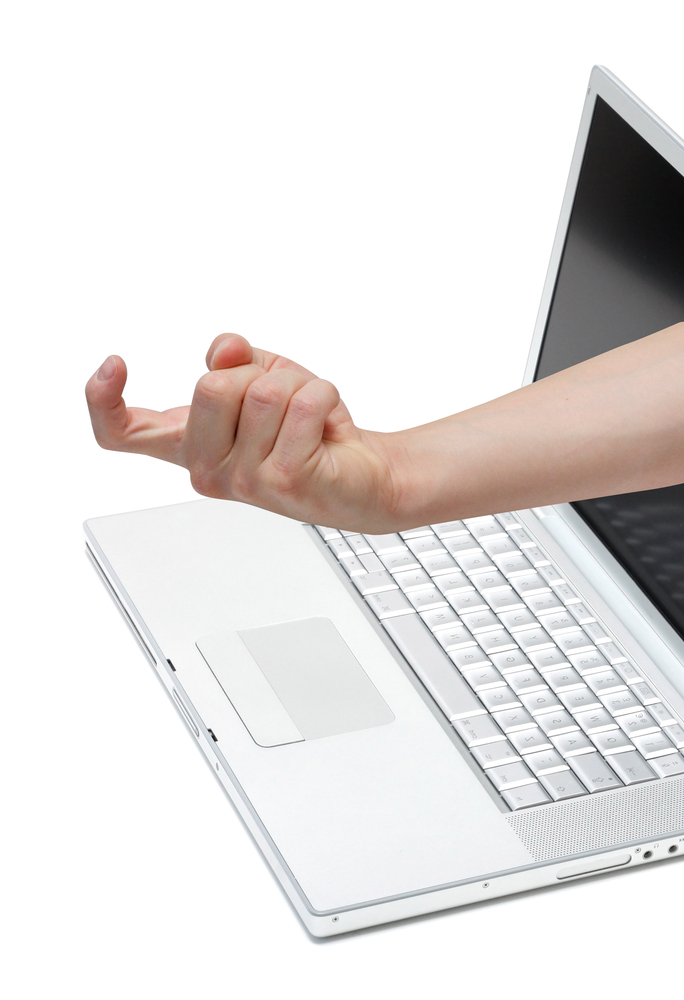
Scam sites lure victims with fake YouTube-to-mp3 converters
Want to access the music tracks of YouTube.com videos on your iPod but don’t want to pay? You’re not alone. Recently, a crop of websites have popped up offering to convert the audio from videos to .mp3 files that you can then download at no charge. Sounds great, right? The catch: scammers are trying to capture the popular click traffic and redirect users to scam websites, where you might get more than you bargained for, in the form of free malware and other unpleasantness as a bonus.
Recently, we hosted a “cyber boot camp”, teaching high school students to attack and defend networks. One of our presenters, John Moffat, who often delivers security awareness seminars to teenagers and stresses the dangers of the “free” Internet, referenced this scam in his presentation. While Mr. Moffat doesn’t claim to be a malware expert, he knows a scam when he sees one, and does his best to help others avoid falling prey.

Is 99 cents too much to pay for an Android game?
Soon after colleague Randall C. Kennedy wrote that "Piracy is killing Android", developer Madfinger Games complained that incredibly high piracy rate on Android devices is why Dead Trigger is free on Google Play, while 99 cents on Apple’s App Store. Is iOS better than Android in this regard?
After an initial price of “as little as buck”, some game developers are going free, due to the piracy rate that plagues the Android world. Madfinger Games hasn’t provided any statistic as to how many of their game installs account for pirated copies, but according to Google Play numbers their installs are in-between 100,000 to 500,000, with an exponential increase at the end of the last 30 days. The game has been free since July 20, so in just four days its popularity skyrocketed. Does this mean a high piracy rate or just the plain “it’s free, I’ll take it” thinking?
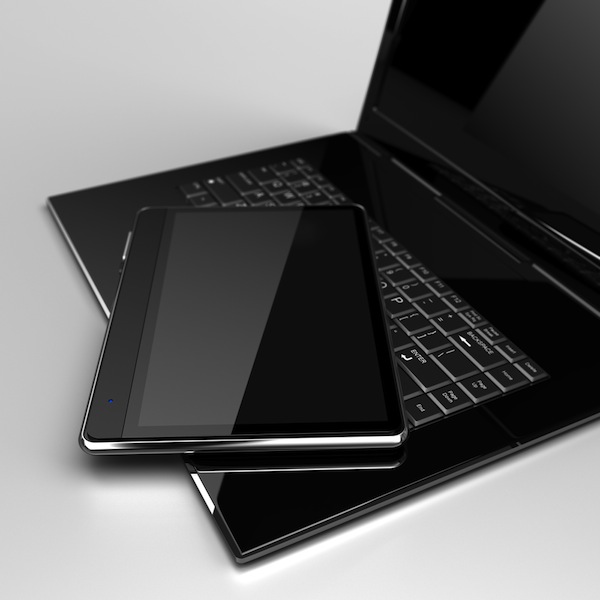
You can't do real work on a tablet
Whenever I think about tablets v. PCs, I remember a bold prediction of old: “Son, 10 years from now everyone will drive an electric car!” When was that, 20 years ago? We’ve all read something like that from someone believing to be clairvoyant.
I read similar articles almost every day where the writer plays the same old broken record: tablets are the death of PCs, or some other flamboyant thing that’s bound to get interest -- with the hope that the reader will agree with the author. It's like almost everyone is set on sending the PC down to the gates of Hell. But why should I agree with their assertions when I actually need a PC?
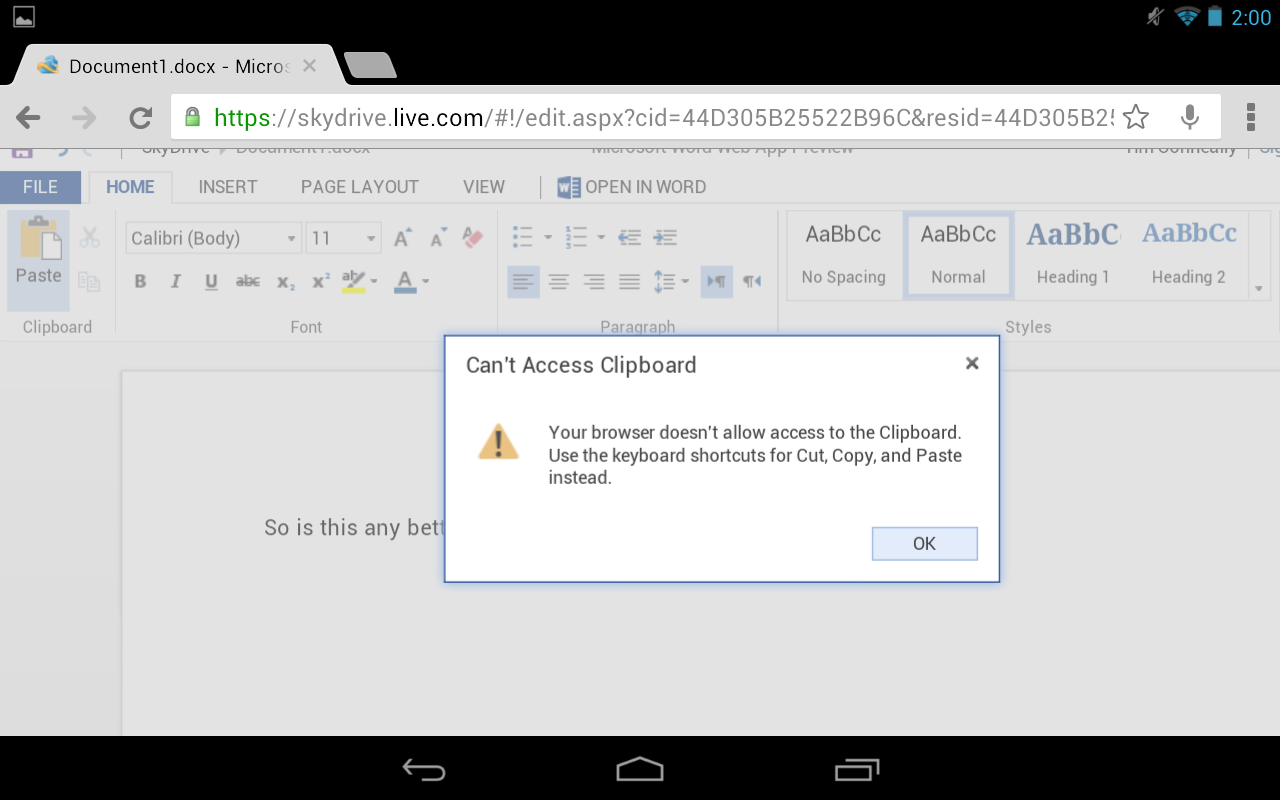
Microsoft's new Office Web Apps: More mobile, but not mobile enough
For just about three years, we've had Microsoft's browser-based suite of free Office tools alongside the desktop Office software. In that time, we've composed and edited loads of Word documents, created Powerpoint presentations, and manipulated Excel spreadsheets. But when these types of Web apps debuted, there were three great islands: the standalone desktop software, the Web-based service, and the mobile application. Each was meant to be used in a different context, and each was equipped with different capabilities to suit those contexts.
For Microsoft in 2010, the PC was still the reigning king, so the Office Web apps were meant to get Office documents off the hard drive and out where they could be easily shared and passed between PCs.
